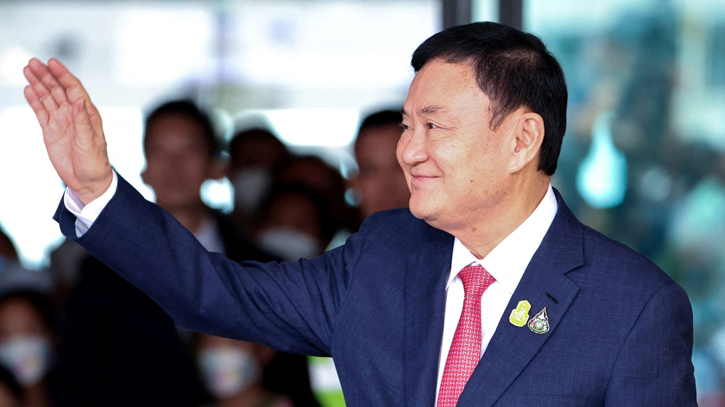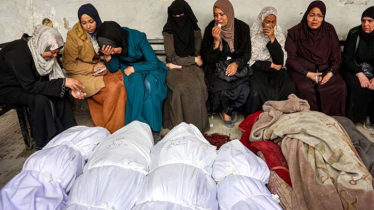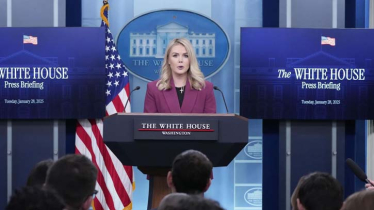
Photo : Collected
Jailed former Thai premier Thaksin Shinawatra will be freed on Sunday (17 February), the kingdom's prime minister has said, just six months after returning from 15 years of self-imposed exile.
The controversial billionaire, twice elected premier and ousted in a 2006 military coup, was jailed for eight years on graft and abuse-of-power charges upon his return to Thailand in August, but within days had his sentence cut to one year by King Maha Vajiralongkorn.
Speaking to reporters on Saturday before boarding a flight, Prime Minister Srettha Thavisin said Thaksin's release would be "on the 18th" and handled "according to the rule of law".
It comes after Justice Minister Tawee Sodsong said earlier this week that Thaksin, 74, would be among 930 prisoners granted early release.
"He is in the group where they are in a critical condition or aged over 70. He will be released after six months automatically," the minister said.
Thai media have reported he could be released very early in the morning, but Srettha said he did not know any details.
Thaksin's homecoming coincided with his Pheu Thai party returning to government in alliance with pro-military parties, leading many to conclude that an agreement had been struck to cut his jail time.
The rumours grew stronger when he was transferred to a police hospital within hours of being sentenced because of his poor health, and it is not clear that he has spent any time in a prison cell.
Local media reported Thaksin had been suffering from chest tightness and high blood pressure when he was admitted to hospital, and his family has said he underwent two operations in the following months.
The exact details of Thaksin's release are not clear, but he may be subject to monitoring -- possibly with an ankle tag -- and restrictions on his right to travel.
His daughter Paetongtarn Shinawatra, the current head of Pheu Thai, welcomed the news earlier this week, saying it was "time for him to live the rest of his life happily".
The former telecoms tycoon is one of the most influential but divisive figures in modern Thai history.
Loved by millions of rural Thais for his populist policies in the early 2000s, Thaksin is reviled by the country's royalist and pro-military establishment.
Much of Thai politics over the past two decades has been coloured by the tussle for power between the establishment and Thaksin and his allies.
When he landed home in Bangkok, his supporters gave him a hero's welcome, and his first public act was to prostrate himself in homage before a portrait of the king at the airport.
Police laid lese-majeste charges against him last week over comments he made in South Korea almost a decade ago, though it is not clear whether prosecutors will take the case to court.
Thaksin denies the charge and has written to the attorney general asking for fair treatment.
Messenger/Fameema








